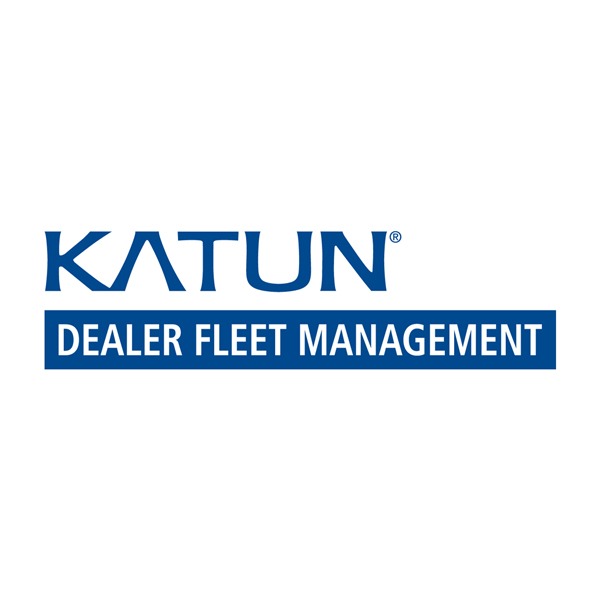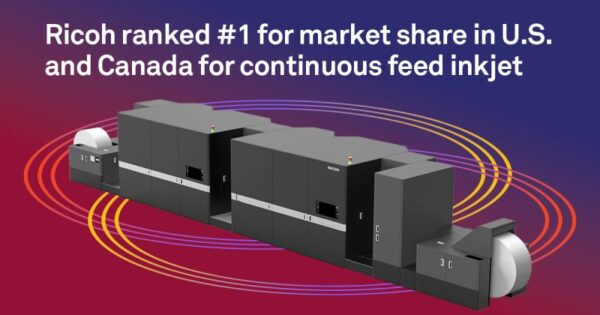Now is the time to explore new MPS opportunities.
To many people, your employees and customers included, printing is as exciting as watching crabgrass sprout between the cracks in your driveway. But now, with a significant portion of some customers’ teams working remotely, printing is much more than putting ink or toner on a page. It’s time to add value to the processes behind the documents your customers produce.
“Dealers need to look past traditional managed print services offerings and explore opportunities to manage customers’ entire print environment,” said Scott Dabice, VP, pricing and strategic pricing, Ricoh USA. “This includes print infrastructure, monitoring, and management needs.”
The hybrid work environment that emerged from the pandemic is driving some of this. This shift has made managing devices proactively and securely mission-critical, spanning not only MFPs but personal devices such as phones, tablets, laptops, and even smartwatches. Flexibility is also expected in scaling print environments up and down as a company’s needs change. This is money on the table for savvy dealers.
“These shifts have accelerated the adoption of cloud-based print infrastructure and subscription offerings,” added Dabice.
Not the MPS You’re Used To
“Not every dealer really understands what MPS is these days,” added Greg Chun, executive vice president, partner, and chief information officer at Team Solutions Group, a Sharp dealer and California-based technology company with offices in eight cities. “MPS is not just routing jobs to a printer. While some dealers and their customers only need to think about local printing, it is very different in an enterprise environment.” The enterprise, he emphasized, is where the real money lies for dealers with a little entrepreneurship in their DNA.
Some of this evolution began before the pandemic, but the speed of change over the last two years has rewarded dealers that pivoted to meet customer needs. MPS now entails IT, security, predictive maintenance, and more. End customers are not shy about asking for a full range of services; if you can’t provide what they want, they may look elsewhere. Remember, many customers view printing as the output end of a document management process. But with companies wanting fewer suppliers, it is in a dealer’s best interest to offer more than equipment, supplies, and basic support services.
“End customers have numerous options for managing their print environment, including dedicated MPS providers, in-house IT staff, direct-from-the-manufacturer subscription programs, and basic MPS programs from such vendors as Microsoft,” said Dabice. “The challenge with these alternatives is they are unable to fully control all aspects of the print infrastructure. This leaves customers on their own to identify the best value for their MPS needs.” And that is an entry point for dealers.
“Copier-printer dealers are well-positioned for success in MPS,” agreed Sarah Custer, vice president of sales operations at Distribution Management. “If a dealer has a sales and operational process in place in one product line, it’s easier to branch out to include other products rather than build a program from scratch. Having existing knowledge in a managed/contractual sales process is a huge asset.” And that knowledge doesn’t all have to be in-house.”
For those getting started with MPS or with an existing program, partnering can be a great option. Companies that develop and sell print management software often seek partners whose customers need varying levels of managed print services. Likewise, firms with a broad reach can be seeking alliances with dealerships looking to expand what they do. Partnering with such firms adds to your company’s offerings while providing a level of expertise that would be costly and time-consuming to develop on your own.
Go Big or Go Home
While some, maybe most, dealers take the easy path and provide proactive break-fix and supply services, these are often limited to smaller clientele. Although some law firms and accountants may be at the smaller end of customers needing MPS, the real value of MPS arrives among larger companies or at the enterprise level, where the needs are much more demanding—and profitable.
Chun noted how copiers and MFPs are (much like your car) just types of computers and must be viewed differently than when they were mere office machines. He emphasized that MPS now involves IT, security, and tracking the functions of every machine a dealer installs. For example, scanning a document is not hard, but when information on that scanned document has to be tracked into an accounting system, distributed to people in multiple locations, and stored in a SQL database for future access, the process is a little more complex. And every bit of it can be billable. “The amount that can be billed for such activities [all of which are automated] is multiples of the amount billed for the devices used,” said Chun. “It’s value for the end customer and puts money on a dealer’s bottom line.”
To be sure, plenty of programming is involved, and security is paramount. Moreover, the dealers serving such customers are the leaders in the copier/scanner/printer/MFP market today and will have the lion’s share of most deals tomorrow. “Many dealers need to decide if they are in the horse and buggy business—or selling jets,” said Chun.
Lest this sound presumptuous, consider dealers near you that have been acquired by a larger firm. If they haven’t vanished entirely, they may have been reborn under a new name, offering MPS, IT services, security, and other capabilities as competitive advantages.
Chun made an interesting point that reflected the comments and actions of some dealers in recent months. “Many end customers are acting more like consumers.” Fact-check? True. Businesses buy office machines from Staples, Walmart, Best Buy, and Amazon. If a device can’t be fixed, they buy a new one. This removes small dealers from the game because the end customer sees little value in buying through a dealer and paying a monthly fee. Adding a comprehensive MPS program can be essential to add value and remain engaged with a customer.
MPS as a Differentiator
“Providing an excellent MPS program is a differentiator,” said Custer. “It takes a combination of technology, discipline, marketing, and the right partnerships,” said Custer. “When done right, it can be easy and seamless, allowing customers to focus on their core business and not worry about being able to print or securely distribute documents.”
Even dealers that have earned customer trust in managing critical business infrastructure may need to go a step further to show the value of MPS. “When end customers find a provider that they are happy with in one area of their business such as printers or copiers, they are much more likely to consider letting them take over the other aspects of their print environment,” said Custer.
In short, dealers that show they can solve today’s business problems by listening to customers and providing effective and comprehensive MPS solutions are on a path to becoming trusted advisors and will continue to gain a competitive advantage in their markets.
_________________________
To become a subscriber, visit www.thecannatareport.com/register or contact cjcannata@cannatareport.com directly. Bulk subscription rates are also available upon request and included in our media kit.





